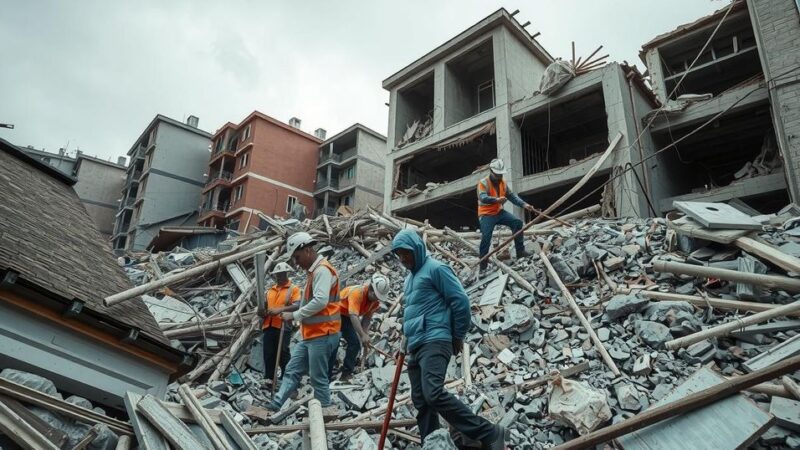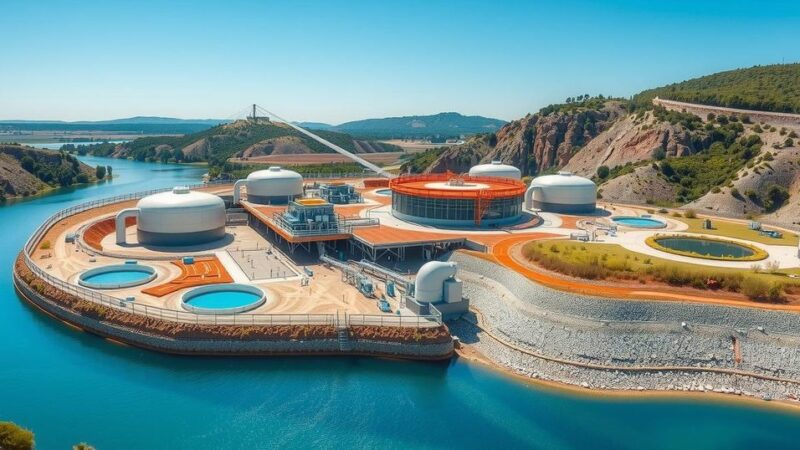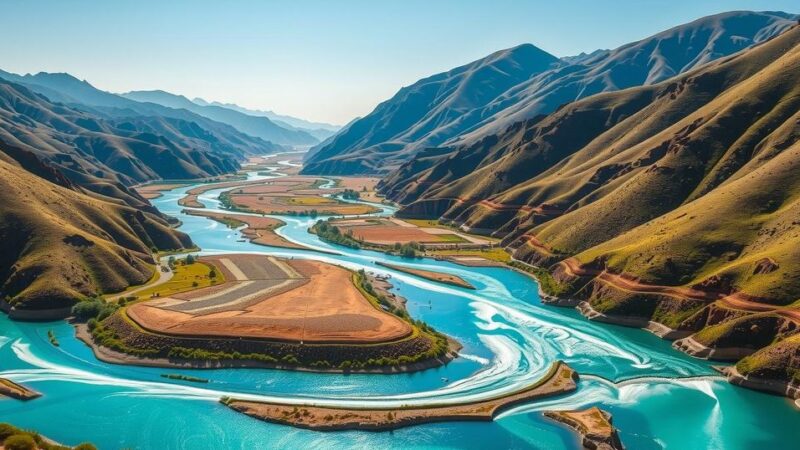Ecuador has declared a state of emergency due to an oil spill from a ruptured pipeline, impacting drinking water supplies for hundreds of thousands. Petroecuador has suspended crude exports and is mobilizing recovery efforts. The spill, estimated at 200,000 barrels, poses severe environmental and public health risks, particularly in river-dependent communities.
Ecuador has declared a state of emergency due to an oil spill caused by a ruptured pipeline following a landslide in the northwest region. This incident has led to significant pollution in several rivers, affecting potable water supplies for hundreds of thousands of residents. The state-owned oil company, Petroecuador, announced a suspension of crude exports in light of the emergency declaration, utilizing the force majeure clause to protect against penalties and contract violations.
The oil spill is estimated to involve approximately 200,000 barrels of crude oil, deeply impacting the local population. Mayor Vicko Villacis reported that around half a million people are affected, with many losing access to clean drinking water, a critical resource in this river-dependent region. Petroecuador is mobilizing tanker trucks to recover the spilled oil, while efforts to supply drinking water are underway through three incoming ships.
The damaged pipeline is part of the Trans-Ecuadorian Pipeline System, responsible for transporting significant volumes of crude oil daily. Marine biologists have expressed grave concerns over the environmental impact, noting a complete absence of life in affected river waters. In the community of Rocafuerte, local fishermen are facing dire consequences, with reports of fishing equipment damaged by oil pollution, raising fears of a long-term loss of their livelihoods.
Ecuador’s emergency declaration in response to the oil spill highlights the severe impact on both the environment and public health. The situation underscores the critical dependency of local communities on river water, now compromised by the contamination. Immediate mitigation efforts led by Petroecuador aim to address the crisis, but the long-term consequences remain uncertain, posing significant challenges for the affected regions.
Original Source: www.jacarandafm.com






